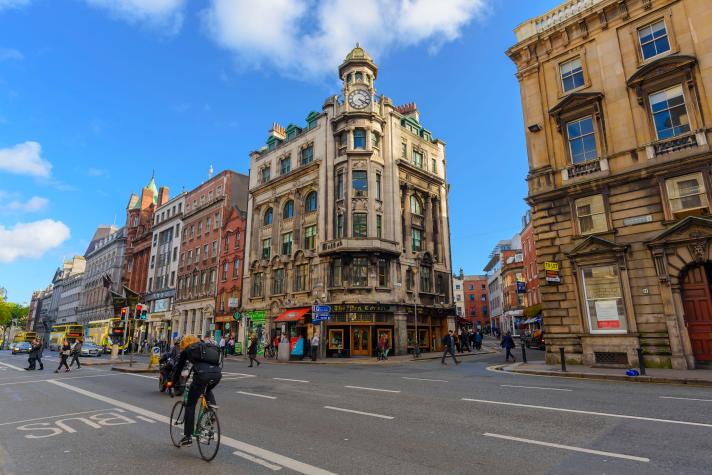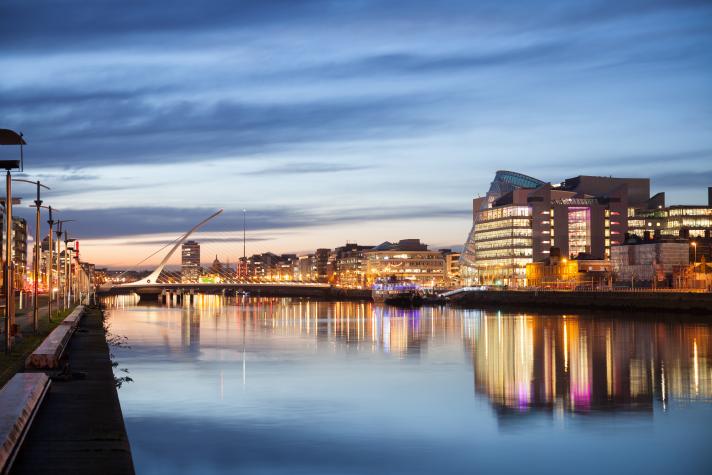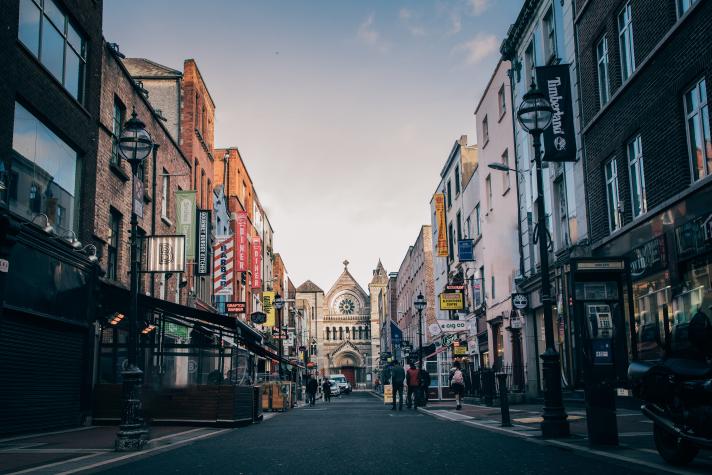A bustling capital city that brings together community, tech and innovation
Dublin, situated on Ireland's vibrant east coast, has a population of over 1.5 million. The bustling Irish capital is the fifth largest transport hub in Europe. Before the pandemic in 2019, tourism supported 68,000 jobs while the city welcome 8.6 million visitors, bringing €2.6 billion in tourist spend. To ensure a successful and sustainable future, Dublin has implemented a strategic smart tourism programme that brings together community, technology and innovation to co-create and transform the traditional tourism experience.
Universal accessibility in Dublin
Dublin strives to make accessibility the priority for the city’s Tourism Strategy. By 2028, Dublin has pledged to place universal accessibility at the centre of all of projects and activities in the city. Dublin Airport, for example, has taken the lead in creating an inclusive travel experience. Through a Disability Users Group, they engage representatives from diverse organizations to ensure decisions align with the needs of individuals with disabilities. Initiatives like the 'important flyer wristbands and lanyards' enable self-identification of passengers needing extra support. The airport also created a sensory room to escape bustling surroundings, specifically catered to those with special needs or dementia.
Innovations extend to an assistance dog relief room, induction loop amplification points for those with hearing difficulties, and visual aids for passengers with autism to plan their airport journey. With over 340,000 interactions in 2019, Dublin Airport remains committed to enhancing accessibility and enriching the passenger experience.
Sustainability
Dublin is green and sustainable. The city boasts an expanding public transport network that moves 268 million passengers yearly, along with a thriving bicycle sharing scheme with 25 million trips. With over 1600 bikes and extensive cycling routes, exploring the city and coast by bike is encouraged. The Coastal Mobility Route, inaugurated in 2020, promotes sustainable transportation and has been successful in transforming how people navigate Dublin's coastline.
Notably, Dublin hosts the world's first carbon-neutral convention center, 8 beaches, and vast green spaces, including the enormous Phoenix Park. Dublin commits to reducing its carbon footprint by 2030 and achieving carbon neutrality by 2050. This commitment is central to the new Tourism Strategy 2023-2028, aligning with national climate goals. Dublin leads in climate action as the first Irish city to sign the UN Glasgow Declaration on Sustainable Tourism and integrates UN Sustainable Development Goals into its strategies.
Cultural engagement
Dublin led by example as one of the earliest European cities to establish a dedicated Culture Company in 2015, driving cultural engagement. The Dublin City Council Culture Company manages city-wide cultural projects and venues, collaborating with individuals, communities, and organizations to enhance cultural involvement. Notable among these is 14 Henrietta Street, a museum narrating architectural and social history. Since 2008, this 10-year endeavour to rescue, stabilize, and conserve the house has combined perspectives from former residents, architects, historians, artists, and more. Oral histories merge with academic research, forming a rich collection enriched by guided tours, poetry, digital archives, and personal narratives.
EPIC, situated in Dublin's historic CHQ Building, is a state-of-the-art attraction offering an interactive journey through Irish history. With touch screen galleries, motion sensor quizzes, and restored audio, the building shares and brings to life the stories of Irish emigrants. Covering themes from religion to politics, and celebrating their global impact, EPIC shares the tales of over 300 lesser-known emigrants. Notable exhibits include "Blazing a Trail," highlighting pioneering Irish women, and "Out in The World," showcasing LGBTQ+ diaspora stories. Due to its innovation and accessibility, EPIC has hosted over 600,000 visitors and earned awards like Europe’s Leading Tourist Attraction.




